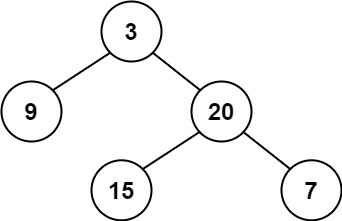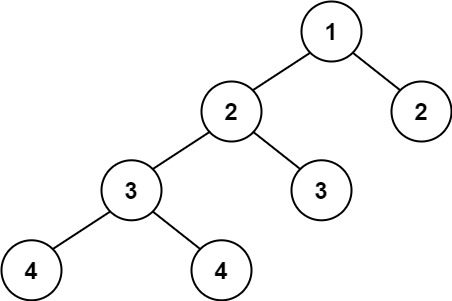Table of contents
Problem statement
Given a binary tree, determine if it is height-balanced.(link)
Example 1:

Input: root = [3,9,20,null,null,15,7]
Output: true
Example 2:

Input: root = [1,2,2,3,3,null,null,4,4]
Output: false
Example 3:
Input: root = []
Output: true
Constraints:
The number of nodes in the tree is in the range
[0, 5000].-10<sup>4</sup> <= Node.val <= 10<sup>4</sup>
Solution
Brute Force Approach
Visit each node to compute the left and right heights. If the difference between them exceeds 1, return false immediately. To determine the tree's height, consult this article (link).
Time - O(n) x O(n!) -(derived easily using a skewed tree)
Space - O(n) - (Auxillary space)
class Solution {
public int maxDepth(TreeNode root){
if(root == null) return 0;
int leftDepth = maxDepth(root.left);
int rightDepth = maxDepth(root.right);
return Math.max(leftDepth, rightDepth) +1;
}
public boolean isBalanced(TreeNode root) {
if(root==null) return true;
int leftHeight = maxDepth(root.left);
int rightHeight = maxDepth(root.right);
if(Math.abs(leftHeight-rightHeight)>1) return false;
if(!isBalanced(root.left) || !isBalanced(root.right)) return false;
return true;
}
}
Optimal Approach
Here, we make a slight adjustment to the calculation approach (link). The key step is to check the difference between the right and left heights; if it exceeds 1, we return -1 immediately. Additionally, if either the left or right height is -1, we also return -1. A return value of -1 indicates that the tree is not a binary tree. In all other cases, if the tree is balanced, we return the usual height.
Time - O(n)
Space - O(n) (Auxillary space)
class Solution {
public int maxDepth(TreeNode root){
if(root == null) return 0;
int leftDepth = maxDepth(root.left);
if(leftDepth==-1) return -1;
int rightDepth = maxDepth(root.right);
if(rightDepth==-1) return -1;
if(Math.abs(leftDepth-rightDepth)>1) return -1;
return Math.max(leftDepth, rightDepth) +1;
}
public boolean isBalanced(TreeNode root) {
return maxDepth(root)!=-1;
}
}
